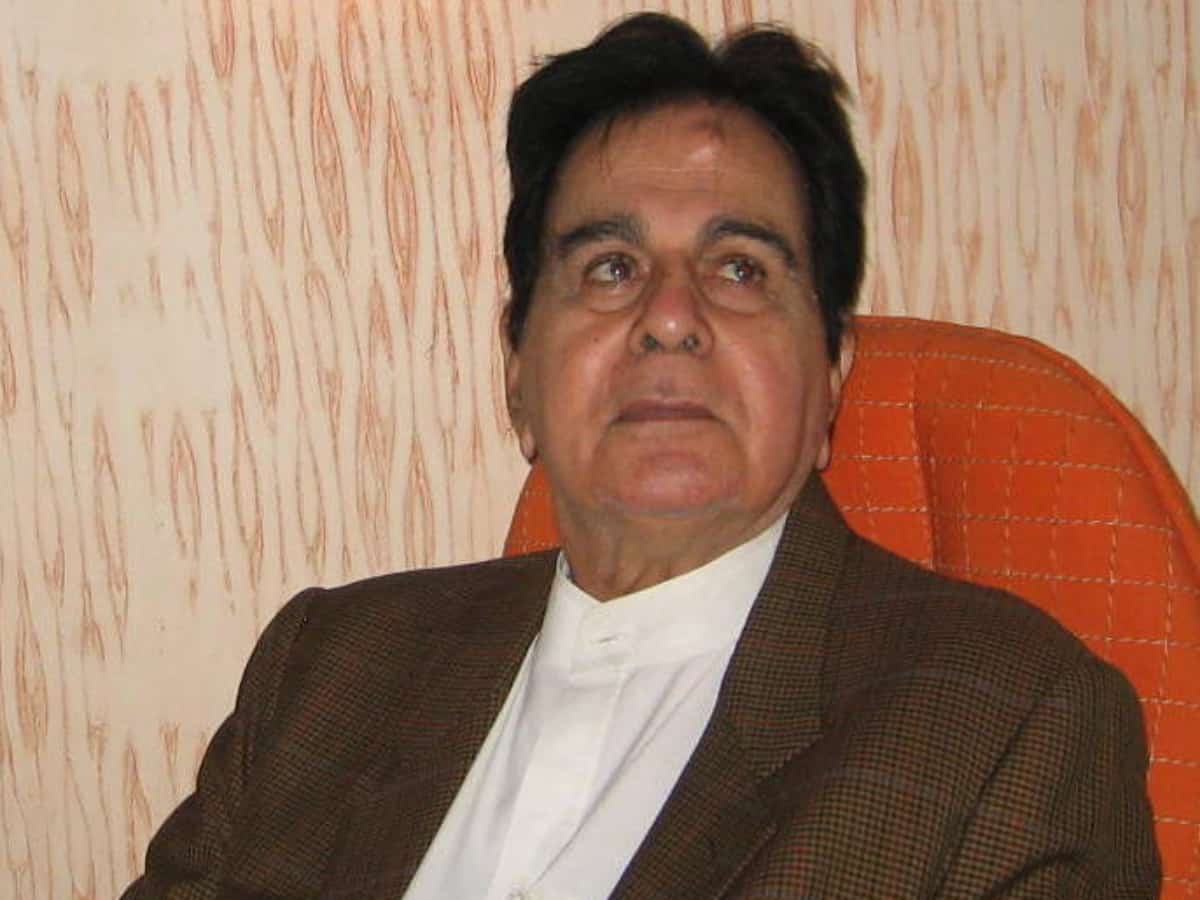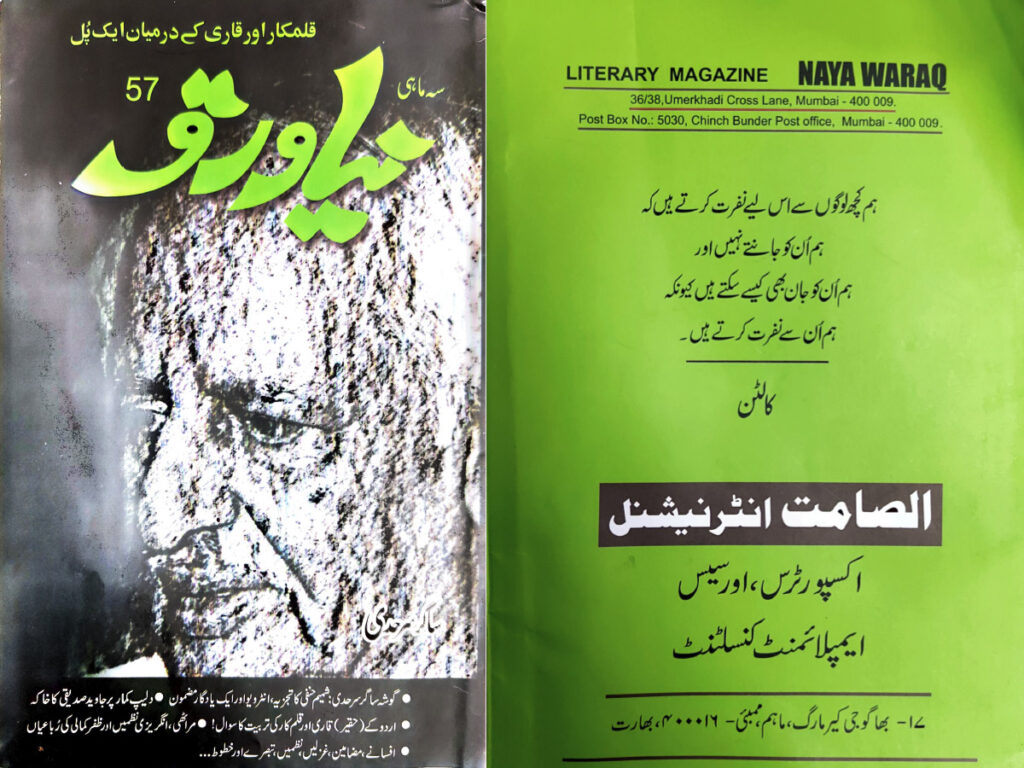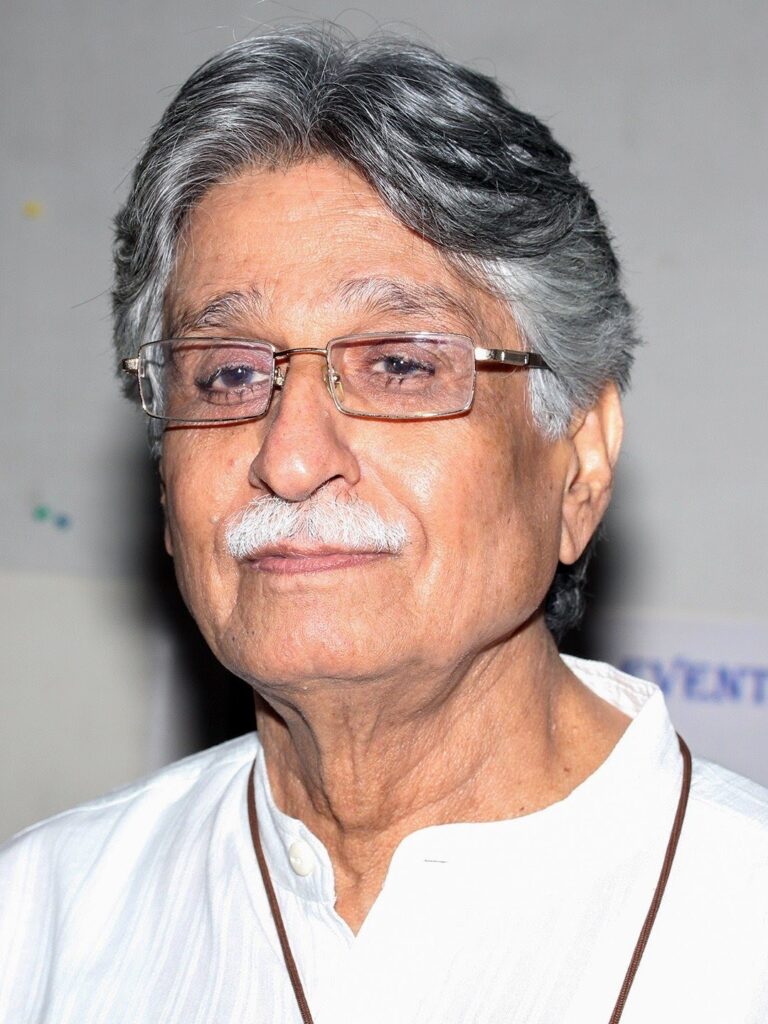
Unlike other art forms, cinema hardly counts on silence, as movie-goers do not expect a lull. They always look for thrill-filled actions, strong emotion-evoking words, action, to get aesthetic pleasure. The actors, through their gestures, facial expressions and adroit dialogue delivery, with the judicious use of sound effects and songs, live up to the expectations.
The viewers seem hardly tired of sound overload, but not scarcely any actor makes them realize that the most profound and intimate feelings exhibit not more than quietude. Nothing revitalizes so much as silence, which produces a sense of palliation and solemnity that they desperately solicit.
How could stillness hold the audience’s breath? It is the defining feature of the iconic actor of Bollywood, Dilip Kumar, who used inarticulateness to convey moments of epiphany and self-introspection. It is something that largely remained invisible to all those who wrote extensively on the legendary actor. Now it is the turn of an eminent author, playwright, screenplay and dialogue writer, Javed Siddiqui, to spell out meticulously what makes Dilip Kumar the most outstanding actor India has ever produced. Besides bagging Filmfare and Star Screen awards for Baazigar, Dilwale Dulhaniya Ley Jayenge, Raja Hindustani and the like, Javed Siddiqui blazed a new trail in pen sketch writing. His latest graphic recountal of the celebrated actor, Saheb published in the current issue of the Avant-garde de literary journal of Urdu Naya Waraq (Mumbai), astutely supplements what has been found missing in numerous biographies, books and articles on Dilip Kumar. In several happening sans scenes, the audience is entirely gripped by the impeccable innovation of silence. It is the stillness but loud with emotions.

· Delineating what makes Dilip Kumar outstanding, Javed Siddiqui writes, ‘A good actor knows the importance of words in the dialogue, and the sur is to be used for its delivery. In the Acting, his whole body performs. Dilip Saheb was well-versed in body language and how it was put into action. One can see this artistry in the performance of many skilful actors, but the adroitness of using silence was only restricted to Dilip Saheb, and no one could vie with him on this count. He converted silence into an evocative language more fascinating and powerful than words. In the seam of dialogues, his reticence and reflective pause become more than the dialogue. Sometimes, his silence casts a spell; if possible, recall the unforgettable scene of Mughal-e-Azam when Saleem meets Anarkali. Does not the taciturnity of moments overrun the dialogues? Converting silence into a vibrant idiom is the seminal contribution of Dilip Kumar”.

Javed Siddiqui aptly summed up the intriguing but most profound aspect of Dilip Kumar’s acting as his integrant trait reminds Mark Twain, who remarked, “The right word may be effective, but no word was ever as effective as a rightly timed pause”. Dilip Kumar’s well-thought-out quietness in acting enabled us to comprehend the significance of the lull in the movies directed by Alfred Hitchcock, Martin Scorsese, Ingrid Bergman and the like. He perfected the art of fashioning a griping and eloquent silence. In his anecdote-filled moving vignette, Javed Siddiqui revealed that he started a biography of Dilip Saheb and jotted down his memories of his Peshawar days and journey from Yusuf Khan to Dilip Kumar. Every day, he would reach Dilip Kumar’s residence to put his conversation into words. As the story progressed, Dilip Saheb realized he had to make many secrets known, which he could not. Reliving time with the iconic hero, Javed mentioned several distinct traits of the actor, known as the king of emotions. On this title, Dilip Kumar told him that expressing emotion is an uphill task; one has to tote up carefully before understanding how to express it fittingly. Turning attention to a scene from Mughal-e-Azam when Saleem came to meet his mother, Jodha Bai, after ages, Dilip Kumar said he was fouled-up to anticipate how Saleem would greet his mother after seventeen years. Did he utter “Maa” and hug her or start crying, or would he pick up his mother in his lap? It took me ten days to decide how Saleem would react or what he said. Deciding which was the most appropriate among the seven “surs” was extremely difficult.
Javed’s moving narrative unravels many unknown layers of the creative dexterity of Dilip Saheb. Besides having an unmatched talent for acting, Dilip Saheb had a distinct flair for writing and revising text written by someone else. The noted playwright’s reminisce candidly reels off. In 1995, Saira Bano was assigned to produce a serial on the life of actors; Farida Jalal and Javed Siddiqui were the anchor and scriptwriter, respectively. Dilip Kumar was supervising the production, and he explained the concept. Javed dashed off the first episode and read out before him. Now listen to what the author says, “Dilip Saheb listened to it attentively and glanced at me continually without any facial expression though smile surfaced occasionally. I was expecting appreciation or suggestions for modification, but he wrapped it by saying, ‘Leave it; I will look at it. We will speak tomorrow.” The next day, Dilip Saheb handed it over to him and stated in a hushed voice, I hope you will not mind, brother; I slightly modified it.” I picked up the script, which left me astounded. Out of five pages, only two were mine, and Dilip Saheb inscribed three new pages. I thought if the pen were used in such a manner, hardly my presence would be required.
Dilip Kumar was an avid reader, though nagging preoccupation prevented him from devoting more time to reading. He was a polyglot, well conversant in Urdu, Pashtu, Punjabi, and English. He could understand Marathi, Gujarati, and Bengali well and had restricted competence in speaking. Iqbal and Josh were his favourite poets, and would recite their couplets frequently. Javed Siddiqui’s beguiling portrayal lays bare undreamed qualities and traits of the actor held in high esteem across the globe. The author has published two collections of iaconic and absorbing accounts of the persons around him. His books Roshan Daan and Lanagar Khana remarkably carry no self-exaltation traces, the hallmark of biographies and pen sketches that appear regularly in Urdu. The issue also published a prudent appraisal of his sketch writing by noted short story writer and accomplished translator Sabiha Anwar. She did well to delineate how Javed Saheb broke new ground in the less admired genre of Urdu literature.
Naya Warq, a reputed literary quarterly, was started by celebrated fiction writer, journalist, cartoonist, and translator Sajid Rasheed and recently published its 57th issue. The untimely death of Sajid Rashid prompted his close literary friends Mohammad Aslam Parvez, Ilyas Shauqi, Qasim Imam and Farhan Hanif Warsi to rally around his son Shaadab Rasheed to carry on the journal. The current issue also published an exclusive section on famous writer Saagar Sarhidi, who had considerable success in the film world. Eminent short story writer and critic Nasir Baghdadi astutely discussed the little-known Diary of Dostoevsky. He wrote a monthly column, Diary of a Writer, for a weekly The Citizen. Two contemporary novels, Jahan Tera Hai Ya Mera and Hujooraama, are insightfully analyzed by Quddoos Javed and Ravendra Jogelkar. Translation from Marathi and English poetry form a separate section. Eminent book reviewer and journalist Shakeel Rasheed reviewed books by Sarwat Khan, Ilyas Shauqi, Aadil Mansoori, and Hajra Noor Zaryaab with a marked sense of critical acuity. The issue showcases the contemporary scenario of Urdu literature discerningly.
Shafey Kidwai, a prominent bilingual critic, is a professor of Mass Communication at Aligarh Muslim University and winner of several literary awards.

